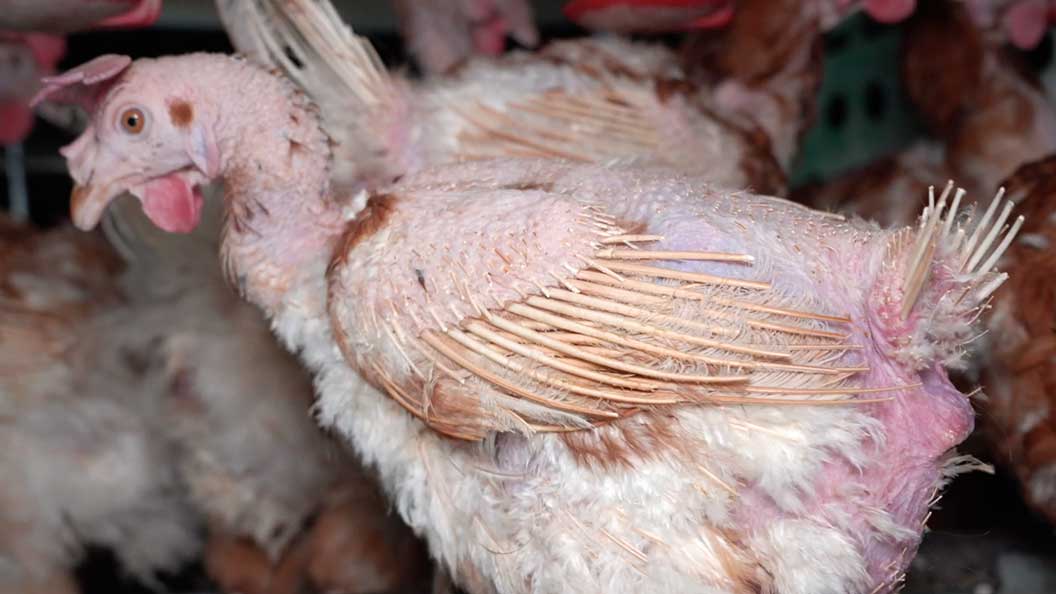The story of how we were denounced over eggs
You read that right, it's not clickbait (just a sensational title). We were denounced, and we spent two years defending ourselves in court.
Guillermo Moreno
Founder and Executive Director
24/01/2024

It all began back in 2020. We still went by the name Equalia. We were young (some more than others) and we had a clear goal in mind: we wanted all hens out of cages once and for all. The egg industry is inherently debatable, and we wanted to take a step forward. As we always say: as long as there is consumption, there should be someone fighting to minimize animal suffering as much as possible. And that's where our organization comes in. In 2020, we launched a campaign asking the Spar supermarket chain to publicly commit to stop selling eggs from caged hens by 2025.
“It wasn't the first campaign of this kind that we launched. In fact, the majority of supermarkets had already committed”
So, what did we do to upset Spar so much? We received images of several farms linked to Spar supermarket suppliers, so we decided to make them public. These images showed eggs with mites and larvae alongside plucked or prolapsed hens (don't do a Google search for that word). Yes, they were VERY unpleasant images, but everyone has the right to know where their purchases come from in order to make informed decisions. Ultimately, we were exposing what was an attack on animal welfare and possibly on public health.
Furthermore, several media outlets began publishing news about the farms, about Spar, and about everything that was happening.
The result? Between December 2020 and April 2021, both the organization and several employees received up to four legal notices demanding the cessation of the campaign, the removal of published material, and threats of filing a lawsuit, along with accusations from associates of Spar of other criminal actions. Quite intense, to say the least.
It should be noted that these were not empty threats. What they say, they do (if only they had said they would eliminate cages). Ultimately, we received two lawsuits for the offenses of defamation, threats, and coercion. Not one, but TWO. One from Spar and another from one of its 13 associates.

“As such, we had a dual lawsuit against the organization, as well as against four members of the team”
Additionally, it's worth mentioning that in one of the legal notices, it was stated that legal actions could be taken against media outlets that did not remove the related content. We don't know if it was a consequence of this legal notice, but days later, 90% of the mentions of Spar in articles related to the case had disappeared.
Among many other things, the company requested a bond of at least €20,000 (Spar, come on, we're a nonprofit).
The result: both lawsuits were dismissed in late 2022 because, excluding all the technicalities and summarizing quite a bit, the organization's actions were protected by the fundamental right to freedom of expression and did not constitute any of the crimes they were accused of. It's worth noting that the complaining companies didn't stop there. They appealed several times, but the result was the same, so we won't make you read the full legal proceedings.

What Spar did to us has a name: SLAPP
Allow us to explain what was behind this lawsuit. Spar probably knew they wouldn't win, but it’s possible that winning was never the goal. This would be a clear example of SLAPP.
SLAPP is an acronym for “Strategic lawsuit against public participation”. Let’s repeat that so it doesn't go unnoticed: a strategic lawsuit. It is a type of lawsuit used to generate fear or fatigue. Generally, it is carried out by large companies and political forces against entities or individuals with fewer resources: let's painfully remember how they were demanding a minimum of €20,000. The goal is for the defendant to tire of investing time (sometimes years) and money to defend themselves.
But AWO, why would they want to do that, you may ask? Well, because under the threat of such a significant lawsuit, organizations tend to stop campaigns to avoid the consequences. In other words, organizations would delete everything and not mention the company again so that they desist or refrain from taking legal actions against the organization.
“Did we stop the Spar campaign to avoid a lawsuit? Obviously NOT”
What happened in the procedure initiated by SPAR
It's normal that you would want to know about what was discussed during those years of proceedings, so we’ve provided you with some reflections from the judge and the court that were involved in the case. All these elements led to the dismissal of the case in our favor, thereby achieving a historic victory for both AWO and the organizations and entities fighting for a slightly fairer world.
Below are some key reflections from the case:
1- Regarding freedom of expression related to a matter of public interest, such as animal welfare: “Under no circumstances can it be argued that the highlighted facts could constitute a crime of coercion or threats. Not all pressure exerted by a particular opinion group can be considered legally relevant, much less when it is related to the exercise of the fundamental right to freedom of expression and in the context of a public debate, such as the pursuit of a specific level of animal welfare in farms intended for human consumption.”
2- The necessity to disclose practices relevant to consumers, enabling them to be informed, make choices, and express their opinions freely about what they consume was emphasized: “Simply conveying that, if a protocol establishing high standards of animal production promoted by the defendant entity is not adhered to, then such reluctance would be made public, can be a perfectly legitimate form of pressure as a way to shape the free opinion of consumers or final recipients of the product. The contrary would render the actions of consumer associations, users, or advocates of certain diffuse interests involved in complex production processes futile.”
3- A direct critique was made of the “censorship” strategy. If we created a brand crisis for them, the company could have utilized its own weapons of communication to fight back. However, instead of doing so, they initiated legal action against the organization and several of its employees: “Simply stating that, in the event of non-compliance with the mentioned protocol, the information would be made public as part of exercising the right to freedom of expression and information, cannot under any circumstances, be considered as legally relevant coercion. Undoubtedly, in these times, the possibilities of disseminating certain messages on social media place affected companies in a vulnerable reputational position, for which they must deploy their timely strategic communication policy and an appropriate response to critical situations. However, this does not justify the use of criminal law to attempt to 'censor' any criticism of their production model, regardless of its accuracy.”
4- Lastly, we highlight the moment in which the place that campaigns have in a free and informed society is underscored: “In a society like the present one, where there are so-called pressure groups and NGOs that reasonably have the freedom to try to shape public opinion on current issues, the launch of campaigns aimed at mobilizing society toward a specific goal such as advising not to purchase products from a particular brand or origin, is correct. Such actions are acceptable in a free society where freedom of expression is duly protected.”
The End
This marks the conclusion of our latest adventure. A historic victory. What does this imply? That, unintentionally, we have set a precedent in our favor and for many organizations.
From now on, they will think twice before filing a lawsuit (we hope).



